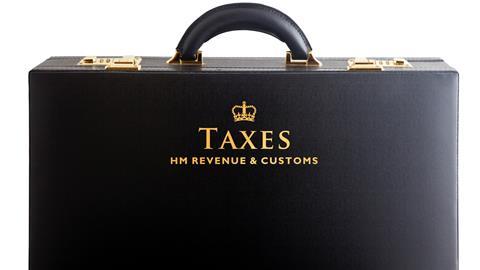MPs are ramping up the rhetoric on economic crime, amid fears new legislation to combat fraud does not go far enough. Lawyers are once again in their sights as ‘facilitators’ of illegal activity and tax dodging
In theory, this week’s sessions of the Commons public bill committee for the Economic Crime and Corporate Transparency Bill were to collect evidence from experts in the field. But few politicians can resist the urge to grandstand.
Stephen Kinnock MP prefaced one question: ‘London has generally become known as the laundromat for dirty money, particularly from Russian oligarchs and others. Money laundering prosecutions
have dropped by 35% over the past five years in the UK. In March 2022, the budget of the NCA’s international corruption unit was cut by 13.5% to £4.3 million, leaving corruption investigators massively outgunned by oligarchs.’
When we got to the questions, the direction of travel was clear: the bill enjoys cross-party support as far as it goes – but has serious omissions.
MPs and witnesses alike questioned whether Companies House will have the resources for its new investigative role. Commander Nik Adams of the City of London Police pointed out that, with many millions of companies on the register, and 1,500 new companies registered each day, the volume of work would be ‘phenomenal’.
Martin Swain of Companies House revealed that the agency has told the government that it will need an extra 100 staff. He also disclosed that the new process for verifying identities of directors would be outsourced. Kinnock suggested that would be ‘a recipe for disaster’.
Thom Townsend, the incoming chair of the UK Anti-Corruption Coalition, agreed. ‘There are grave misgivings about that being outsourced… In an ideal world, Companies House should be doing that.’
He summed up the central problem. ‘[Companies House] is fantastic at what it does now – it provides a really good service to register a business quickly, and is really easy to use – but has never had to do the kind of things that we are now proposing. It will be a long journey to get from where it is today to the sort of high-functioning all-singing, all-dancing machine that we are proposing.’
'We’ve been waiting a long time for it. Ideally you would have a failure to prevent fraud offence, a failure to prevent false accounting offence, and a failure to prevent money laundering offence'
Dr Susan Hawley, Spotlight on Corruption
Dame Margaret Hodge MP raised one of the bill’s most talked about omissions – that it would not create an offence of failure to prevent economic crime. She was backed up by Michelle Crotty of the Serious Fraud Office: ‘We’re very strongly on the record as saying that that is an offence we would like to see.’
Adams of the City of London Police agreed, speaking of its ‘galvanising power’.
Another witness, Dr Susan Hawley, of Spotlight on Corruption, pointed out that Jersey and Guernsey are already introducing measures ‘that go far further than we have in the UK, including a failure to prevent money laundering offence’.
‘The Law Commission has now spoken,’ she said. ‘We’ve been waiting a long time for it. Ideally you would have a failure to prevent fraud offence, a failure to prevent false accounting offence, and a failure to prevent money laundering offence.’
Bill Browder of the Global Magnitsky Justice Campaign spoke of the chilling effect of adverse costs in prosecutions.
‘You could easily write an amendment to the law as it is written… to say that if the Crown Prosecution Service brings a money laundering case or an economic crime case, there are no adverse costs. If you make that point it will change the whole dynamic – the whole risk-reward – for these people.’
As expected, the legal profession came in for some implicit criticism.
‘Lawyers certainly come up constantly as facilitators, giving opinions that underwrite either unlawful behaviour in the tax field or illegal behaviour elsewhere,’ Hodge observed.
Hodge had lambasted the ‘tax industry’ earlier in the week, speaking as chair of the All-Party Parliamentary Group for Anti-Corruption & Responsible Tax. She had introduced a report published by the group and thinktank Taxwatch stating that the distinction between legal tax avoidance and illegal evasion is ‘a myth’ and that aggressive tax avoidance could, and should, be prosecuted for the offence of cheating the public revenue.
‘The myth that tax avoidance is legal and tax evasion is illegal is a false distinction which is reinforced by the tax industry and HMRC’s feeble approach to enforcement,’ said Hodge. ‘Our bold new paper attempts to explode these myths and recommends that HMRC should be enforcing existing criminal law by prosecuting the enablers of the most aggressive tax avoidance. HMRC should be enforcing the laws of the land, not the rules of the “tax fraud game” that let tax avoiders and their enablers off the hook.’
The Economic Crime and Transparency Bill will come before the bill committee again on 1 November.





































6 Readers' comments